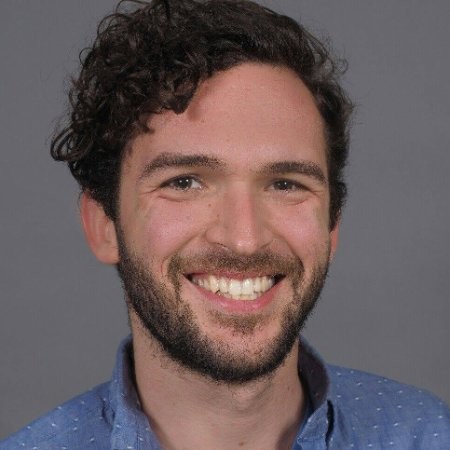 Mt. Airy Community Urban Redevelopment Enterprise (CURE) is a nonprofit community development corporation that is helping the Cincinnati community to organize and access critical investment dollars. IFF sat down with Executive Director Daniel Traicoff to learn more about how the organization is responding to COVID-19 and how the Paycheck Protection Program (PPP) may help them through this moment in history.
Mt. Airy Community Urban Redevelopment Enterprise (CURE) is a nonprofit community development corporation that is helping the Cincinnati community to organize and access critical investment dollars. IFF sat down with Executive Director Daniel Traicoff to learn more about how the organization is responding to COVID-19 and how the Paycheck Protection Program (PPP) may help them through this moment in history.
IFF: How did COVID-19 and the related shutdowns affect your organization?
Traicoff: When the shutdown happened, it affected us pretty drastically. We are a nonprofit development corporation, and a big part of what we do is purchase properties. Some of them have tenants in them, and about half of those are daycares. Many of them weren’t eligible for PPP because they couldn’t stay open with staff, so they really struggled to get any funds. We chose to waive their rent for 1.5 months, and then we worked very closely with them to send them other grant and funding opportunities. We were happy to do it – they needed help, and they help our community every single day. But we still had to pay our utilities and taxes, so we did take a big financial hit. It was really difficult for us for a few months.
Of course, when it rains, it pours. Right after we gave the free rent, a car that was driving 80 mph through our 25 mph business district smashed into one of our daycares. Thankfully, they were closed, otherwise there would have been significant injuries. But, even though insurance covered some of it, we had to put a big chunk of money into repairing that. It just made an already difficult time even harder.
In addition to the revenue side, a lot of our major planning work really kind of stopped for 3-4 months. We had scheduled, and then canceled, the March 24 launch of our very first comprehensive neighborhood planning process since 1975. Shortly after that, the City of Cincinnati had to furlough its Planning Department, which put another major project of ours on hold. Then we had to put a property acquisition on hold. Then, ironically, we had to put on hold a study about how to slow down traffic in the neighborhood. But, pretty much all that work has now started back up again.
I spent a lot of late nights with our Board talking about the “what ifs” for an impossible situation.
IFF: Why did you decide to pursue a PPP loan, and how do you think it will help your agency?
Traicoff: When IFF helped us out with the PPP loan, that was the week after the accident happened. It had been a really bad week. But then suddenly with the PPP funding we were finally able to change from “what if” conversations to having some actual answers. We knew we could plan things month-by-month, instead of minute-by-minute. The work that had been paused started to move – we figured out how to have our community planning through virtual sessions, we got in touch with the City to see where our budgets were, etc. Even if the answer wasn’t always what we wanted to hear, at least it was an answer. Frankly, if we didn’t have IFF’s help with the PPP loan, we wouldn’t have been able to figure out any of that.
IFF: What was your experience like in getting the PPP loan?
Traicoff: When PPP loan first came out, the biggest reason we started having those anxieties was our bank. While our local branch was supportive and helpful, there wasn’t much they could do to get the corporate-level folks who were administering PPP to respond to us. I messaged them once a week saying: “Where are you? What do I need to do? Please give us some information. We need to apply. We’re desperate.” No response, no response, no response. When the first round of money ran out, we really started to panic.
I heard about IFF’s program when someone forwarded me your email. I reached out and got a response back in less than 24 hours. Almost instantaneously, we got a meeting scheduled, they told me what to do, and we got it done.
IFF: What’s one thing you’ve learned in this climate?
We’re not alone. People are so willing to help if you just ask.
I also learned about IFF. We’re a CDC still in the starting stages, but within 3 years we’ll do our first big development, and I know I’ll contact you guys because I trust you wholeheartedly. You showed us who you were at a rough time, and people won’t forget that.